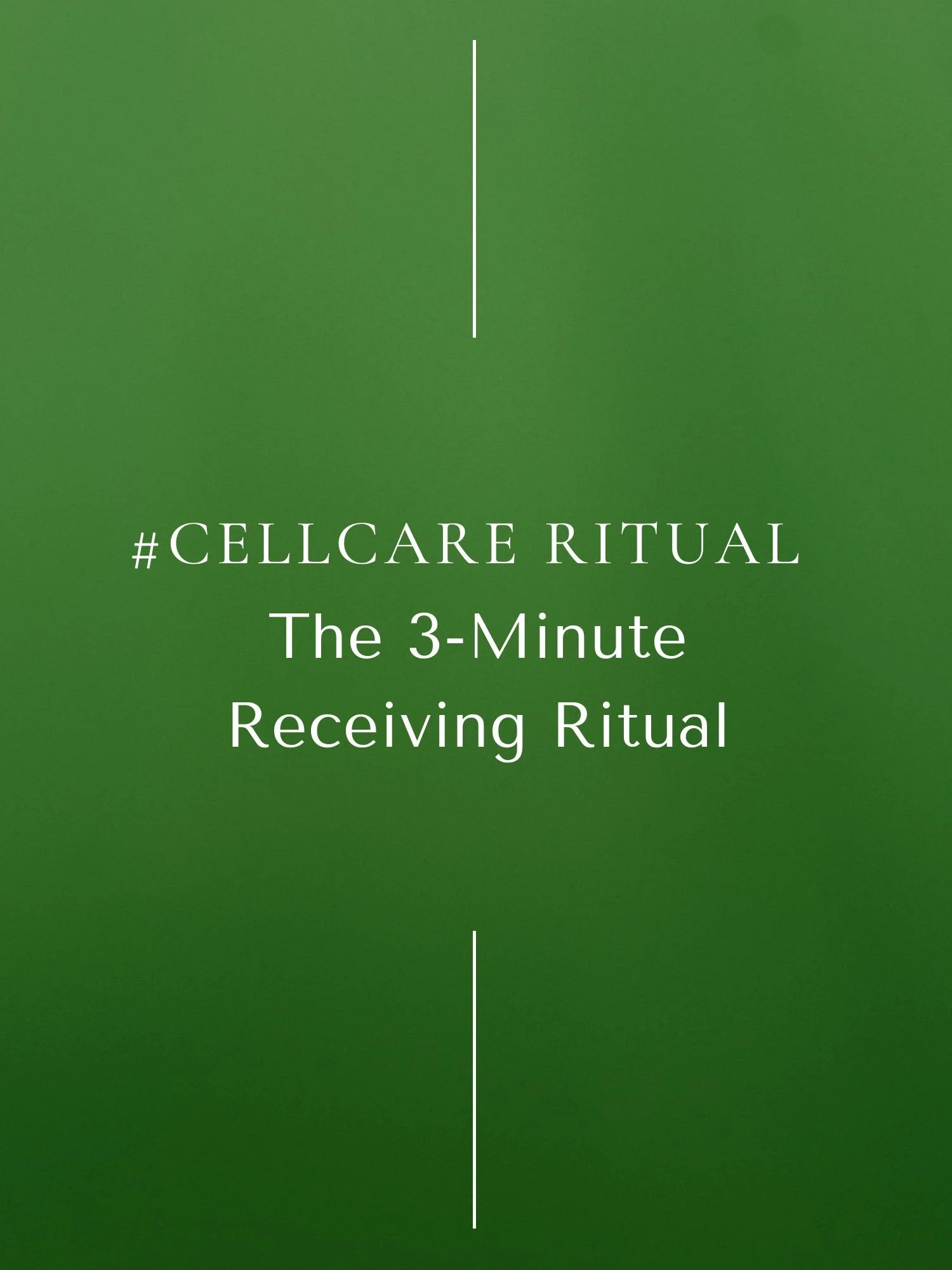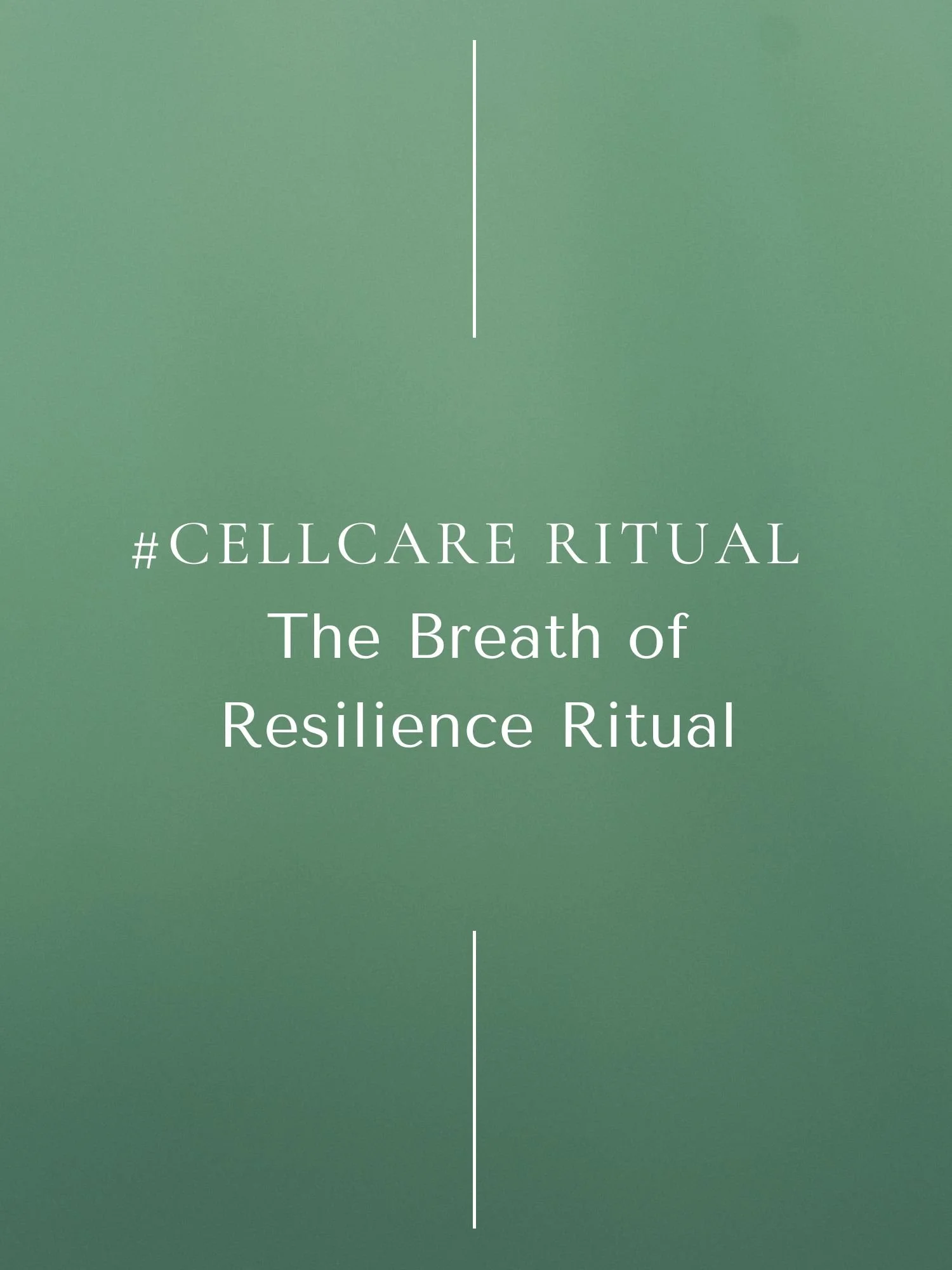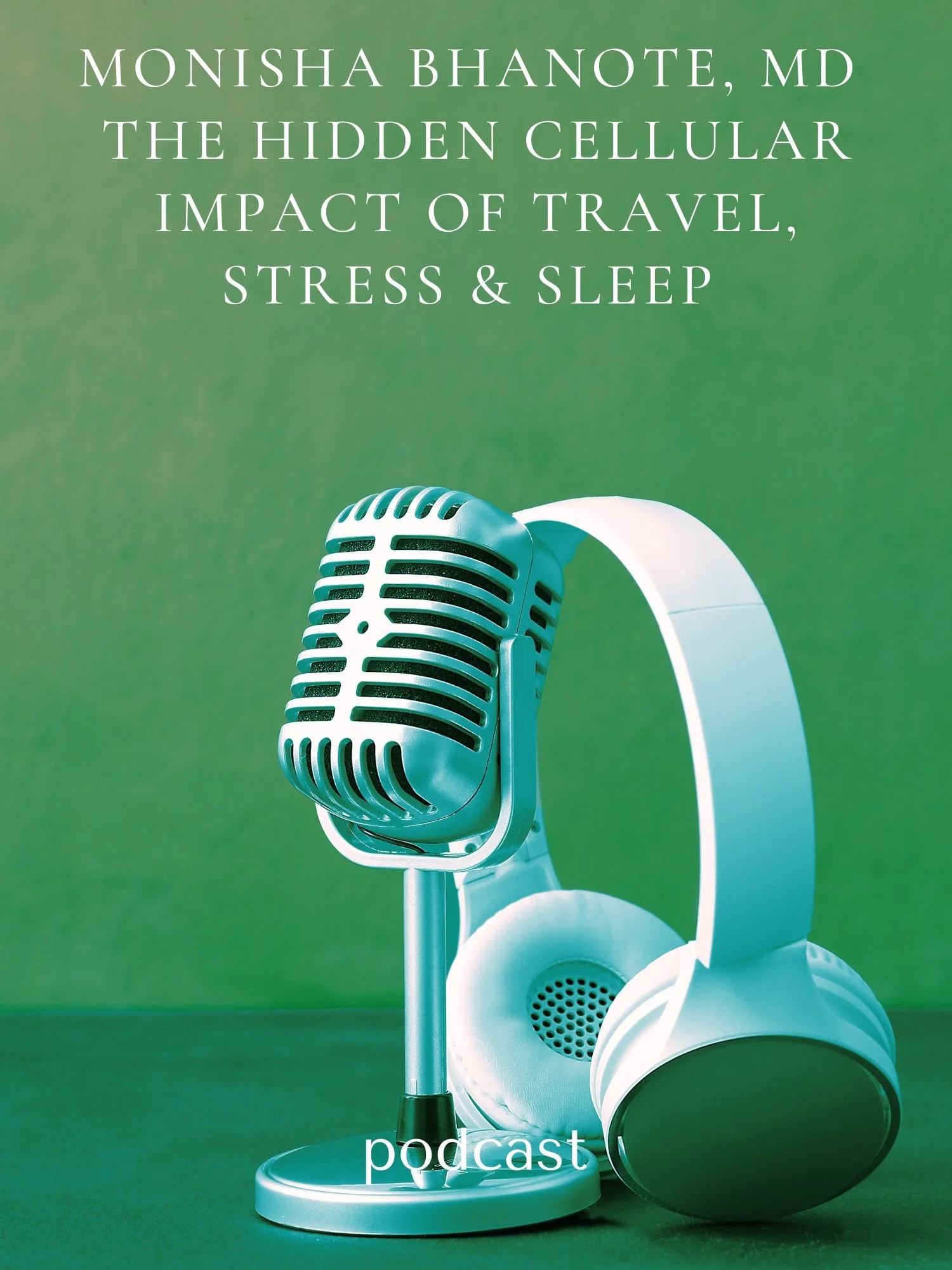Doctor-Backed Jet Lag Rituals to Reset Your Body Fast
It’s Not Just “Travel Tired”—It’s a Full-Body Disruption
When my patient Laura flew from New York to Barcelona for a long-awaited mother-daughter trip, she expected some exhaustion. What she didn’t expect was waking up at 2 AM wide awake, falling asleep at 4 PM after lunch, and feeling bloated for three straight days. She had spent months preparing for this trip—yet her body felt like it hadn’t made it across the Atlantic with her.
Jet lag is more than just a nuisance. It’s a physiological shift that impacts your brain, hormones, digestion, and even immune system—and it doesn’t care how much you’re looking forward to the vacation.
I’ve experienced it myself—after flying from Miami to Indonesia, I spent three days feeling like I was floating in slow motion. I was awake when I should’ve been asleep, and my digestion completely shut down. It reminded me: the body doesn’t run on a passport. It runs on rhythm.
So let’s talk about what’s really going on—and how to fix it.
What Is Jet Lag, Really?
Jet lag is more than just feeling tired after a long flight—it’s a full-body misalignment between your internal clock and your external environment. Clinically, it’s categorized as a circadian rhythm disorder, which means your biological rhythms—everything from your sleep-wake cycle to your digestion and hormone release—are temporarily thrown off track.
At the heart of this is your suprachiasmatic nucleus (SCN)—a tiny bundle of neurons in the hypothalamus of your brain. This is your body’s master clock. It takes its cues primarily from light and darkness and sends signals throughout your body to regulate when to sleep, when to wake, when to digest, and even when to release immune cells.
Now imagine you’re flying from Los Angeles to London. You’ve crossed eight time zones in under 11 hours. The sun might be rising in London, but your SCN is still operating on Pacific Standard Time, telling your body it’s the middle of the night. That’s where the mismatch begins.
But the SCN isn’t working alone.
Your body contains peripheral clocks—in your gut, liver, kidneys, skin, and even your immune system. These clocks are coordinated by the SCN but are also influenced by things like meal timing, movement, and sleep. When you land in a new time zone and continue eating, sleeping, and waking out of sync with the sun, all of these systems fall into a kind of temporary chaos.
ARTICLE CONTINUES BELOW
This is why you may feel:
Wired at bedtime, and exhausted during the day
Bloated after a simple breakfast
Cranky, brain-fogged, or unmotivated without understanding why
Your body is simply trying to adapt. It’s not malfunctioning—it’s recalibrating.
For example, I had a patient, Ana, who traveled frequently for work. She couldn’t understand why she always got sick after international flights. When we looked deeper, we found her circadian rhythm was so chronically dysregulated that her immune timing—when her body was supposed to deploy defense cells—was completely off. Once we built her a routine to support circadian realignment, her post-travel colds and crashes drastically reduced.
Jet lag isn’t just a sleep problem. It’s a cellular timing problem. And the faster we fly across time zones, the more we ask our biology to sprint into a rhythm it hasn’t rehearsed.
You may land at your destination, but your melatonin, cortisol, digestive enzymes, and immune cells are still on layover—stuck in your departure time zone. That’s why, even with rest or a clean meal, something still feels “off.”
Why You Feel Jet Lag So Deeply
Let’s say you’re flying from Los Angeles to London. It’s an overnight flight, you lose eight hours, and you land in the morning—but your body still thinks it’s the middle of the night and time for dinner.
The sun is up, but your melatonin is still in full swing.
Your cortisol hasn’t ramped up yet to energize you.
Your gut clock is confused about when to digest.
And your immune system is less vigilant because it’s unsure what time it is.
That internal misalignment shows up as:
Trouble falling asleep or staying asleep
Daytime fatigue, even after resting
Brain fog and irritability
Bloating or constipation
Weakened immune defense
For women navigating hormonal changes, perimenopause, or burnout, these effects can be amplified. A nervous system that’s already on high alert is more reactive to circadian stress—and jet lag simply tips it over the edge.
The good news? With a few intentional rituals, you can guide your biology back into rhythm—and reclaim your energy on the road.
The Science-Backed Jet Lag Reset Rituals I Recommend
Resetting from jet lag isn’t about forcing your body into submission—it’s about guiding it gently back into rhythm. These are the same rituals I use with my patients, in my own travels, and at our Longevity Retreats around the world. They’re simple, science-backed, and deeply effective.
1. Light Exposure Is Your First Anchor
Sunlight is your body’s most powerful timekeeper. It tells your brain what time it is—even more reliably than your phone.
Let’s return to Laura, who had landed in Barcelona feeling thrown off, despite all her pre-travel prep. That first morning, I gave her one simple instruction: go outside as soon as you wake up—no sunglasses, even if it’s overcast—and walk for 10 to 15 minutes.
She texted me the next day: “That morning walk changed everything.”
Here’s why: Your brain’s master clock, the suprachiasmatic nucleus, is directly connected to the optic nerve. Natural light exposure in the morning sends a clear signal—this is day—which helps reset your melatonin (the sleep hormone) and cortisol (your natural energy hormone) to the new time zone.
But here’s the part most people miss: just as morning light calibrates your internal clock, bright artificial light at night confuses it. Screens, overhead lighting, hotel lamps—they all tell your brain it’s still daytime, delaying melatonin release and making restful sleep nearly impossible.
I often see this with patients who “can’t sleep on night one.” It’s not insomnia—it’s lighting hygiene.
What to do:
Upon waking, step outside within the first 60 minutes. No sunglasses, no hats—just gentle light in your eyes.
After sunset, switch to red-toned lights, candlelight, or low lux settings to avoid suppressing melatonin.
If needed, consider travel-friendly tools like blue light-blocking glasses or a compact red nightlight for hotel rooms.
This one ritual, when done consistently for the first few days in a new time zone, can shave days off your jet lag recovery.
#CellCare Tip | The Research Behind Morning Light
In a randomized controlled trial, morning bright light exposure was shown to significantly advance circadian phase and improve sleep quality in those experiencing jet lag and circadian rhythm disorders.
Early morning light works by activating melanopsin-containing retinal ganglion cells, which in turn suppress melatonin and promote alertness. Just 20–30 minutes of natural morning light—especially in the first few hours after waking—can help re-entrain your internal clock to a new time zone.
If natural light isn’t available, portable light therapy boxes with 10,000 lux can be used in a pinch—but nothing beats the healing intelligence of real sunlight.
2. Magnesium + Adaptogens at Night
After a long-haul flight, it’s tempting to push through and stay awake until “local bedtime.” But if your nervous system is in overdrive and your cortisol hasn’t settled, falling asleep becomes a frustrating battle.
That’s what happened to Ana, my frequent flyer patient. She wasn’t new to jet lag—but what caught her off guard was how wired she felt at bedtime after landing in Tokyo. Her eyes were heavy, but her mind was racing.
Instead of sleep aids or melatonin, I guided her toward a gentler ritual: magnesium paired with calming adaptogens.
Magnesium bisglycinate supports parasympathetic nervous system activity—the “rest and digest” mode we need to fall into deep, reparative sleep. When combined with adaptogens like ashwagandha, reishi, or lemon balm, the effect is synergistic: they help modulate cortisol levels, soothe stress, and promote a sense of grounded calm.
Ana began taking her magnesium and sipping a warm adaptogen tea 60–90 minutes before her new local bedtime. Within two nights, her body began to shift—and she started waking refreshed instead of groggy.
What to do:
Supplement with magnesium bisglycinate (150–300 mg) in the early evening.
Brew a calming tea with ashwagandha, reishi, lemon balm, or tulsi.
Unwind with a ritual—dim lights, take a warm bath, and avoid screens for 30–60 minutes before bed.
If you’re a traveler prone to nervous system dysregulation, these ingredients act as buffers—protecting your body from stress-related hormone spikes while helping you land gently into rest.
#CellCare Tip | The Science of Cortisol + Magnesium Synergy
Magnesium plays a critical role in regulating the hypothalamic-pituitary-adrenal (HPA) axis, which governs your body’s stress response. Research shows that magnesium deficiency is associated with heightened stress, anxiety, and disrupted sleep, particularly during periods of biological or environmental stress—like crossing time zones.
Meanwhile, adaptogens such as ashwagandha (Withania somnifera) have been shown in multiple human trials to lower serum cortisol levels, improve sleep onset, and support mood balance in chronically stressed individuals.
Together, magnesium and adaptogens form a powerful team: one nourishes the nervous system, the other teaches it how to adapt.
This is your cellular safety net—especially when your rhythm has been shaken by travel.
3. Hydrate Intentionally—with Electrolytes
One of the most overlooked jet lag disruptors? Dehydration.
Airplane cabins have humidity levels lower than the Sahara Desert, which means every hour in the air depletes your body of fluids—not just from your skin, but also from your blood volume and mucosal linings. This affects everything from energy and digestion to cognitive clarity and immune defense.
I remember one patient, James, a frequent international traveler who always felt foggy and nauseous upon landing—even when he’d slept well on the plane. The fix wasn’t more rest—it was replenishing minerals.
It turns out that even mild dehydration impairs cognitive performance, digestion, and thermoregulation—and when you’re crossing time zones, your body has even less resilience to compensate.
We started James on a pre-flight ritual: drink coconut water (a natural source of potassium and electrolytes) the day before and during travel. He also brought along a travel-size hydration mix with added magnesium, sodium, and trace minerals. The result? No more post-flight fog, and a dramatic improvement in energy after landing.
What to do:
Start hydrating 24 hours before your flight—aim for half your body weight in ounces of water daily.
During the flight, alternate plain water with coconut water or add an electrolyte packet to your bottle (look for ones without added sugar or dyes).
Continue electrolyte support for 1–2 days post-flight, especially if you’re adjusting to a drastically different climate.
Travel Tip: Coconut water is now widely available at airport kiosks and shops after security, often in 11–12 oz boxes or bottles. Grab one before boarding and sip it mid-flight to support circulation, electrolyte balance, and cellular hydration.
#CellCare Tip | The Mitochondria-Electrolyte Connection
Hydration isn’t just about water—it’s about how well your cells retain and use it. Electrolytes like potassium, sodium, and magnesium are essential for mitochondrial function, nervous system signaling, and temperature regulation—all of which are taxed during air travel.
In fact electrolyte imbalances can contribute to impaired circadian rhythm recovery in subjects exposed to time-zone disruption.
Coconut water provides a natural, bioavailable source of potassium, and when paired with magnesium and sodium, it helps restore electrical balance across cell membranes—a critical factor in energy production and recovery post-flight.
Your mitochondria don’t just need fuel—they need fluid with minerals to thrive.
4. Eat on Destination Time—Even if You’re Not Hungry
Your gut doesn’t just digest food—it tells time.
Like your brain, your digestive system runs on a circadian clock. It knows when to release stomach acid, digestive enzymes, and even bile based on patterns of light, movement, and mealtime. So when you eat at midnight body time—just because the flight attendant placed a tray in front of you—your gut gets confused.
I’ve learned this the hard way.
On my first trip to Singapore, I ate dinner on the plane at 2 AM according to my body clock—because it was “dinner service.” I landed feeling sluggish, bloated, and slightly nauseous. The next time I traveled to Asia, I did the opposite. I skipped the in-flight meal and waited until I arrived and it was “morning” local time before eating.
The difference? Night and day—literally. My energy, digestion, and mental clarity rebounded in half the time.
This is a strategy I now recommend to all my patients.
What to do:
Begin eating on your destination’s schedule as soon as you board the plane.
Skip meals during flights if they don’t align with your new time zone (bring your own snacks if needed).
Choose warm, plant-based meals post-landing to support agni—your digestive fire—and promote gut motility.
Avoid heavy, processed airplane meals high in sodium and refined oils. Your gut is already stressed—don’t add fuel to the fire.
Bonus ritual: Sip a digestive herbal tea (like ginger, fennel, or CCF) after your arrival meal to encourage healthy elimination and reduce bloating.
#CellCare Tip | Your Gut Is a Clock—And Food Is the Alarm
The gut contains its own peripheral circadian clocks, regulated by a master clock in the brain—but also by food timing. Studies show that feeding-fasting cycles are among the strongest cues for resetting peripheral clocks in the digestive system and liver.
Eating out of sync with your new environment can delay full circadian realignment by up to 5–7 days, especially if meals are high in fat and sugar. On the other hand, timing your meals to local daylight helps reset gut motility, glucose metabolism, and hormone rhythms.
When your meals are in rhythm, your energy, mood, and microbiome follow.
5. Grounding: A Ritual That Calms the Whole System
You’ve landed. You’ve cleared customs. You’ve checked in. But your nervous system? It still thinks it’s in transit.
That’s why one of the first things I recommend after a long flight isn’t unpacking or checking email—it’s grounding.
On a recent retreat in Portugal, one of our guests, Maya, arrived from the U.S. after nearly 14 hours of travel. She was buzzing with anticipation but also jittery, lightheaded, and unable to focus during our first group circle. I invited her to remove her shoes and join me outside—feet in the grass, spine aligned, just 10 minutes of quiet connection with the Earth.
Later that evening she whispered, “That reset me more than sleep ever could.”
Grounding, or earthing, is the practice of connecting your body directly with the Earth’s surface—grass, sand, soil, or even stone. This contact helps discharge excess electrical charge accumulated from EMF exposure and air travel, and restores electrical stability across your cells.
It’s not woo. It’s biophysics. And the effects are measurable.
What to do:
Within 24 hours of landing, go outside and place your bare feet on natural ground for at least 10 minutes.
If you’re in a city, find a nearby park, beach, or even a courtyard with exposed earth or stone.
Pair your grounding ritual with slow nasal breathing or a short walk to help calm your vagus nerve and reorient your body to its new environment.
Consider travel-friendly grounding tools like earthing socks or EMF-protective travel wraps if you can’t access nature directly.
This ritual isn’t about doing—it’s about being. It reminds your body, “You’re safe. You’ve arrived. It’s okay to land.”
#CellCare Tip | The Science of Grounding and Circadian Realignment
Grounding has been shown to influence autonomic nervous system balance, reduce inflammation, and improve heart rate variability—a key marker of nervous system recovery.
Research also shows that grounding during sleep improves cortisol patterns and reduced symptoms of sleep dysfunction and stress. These benefits are especially helpful when your body is recalibrating to a new time zone and climate.
The mechanism? Direct skin contact with the Earth allows free electrons to flow into the body, neutralizing oxidative stress and stabilizing cellular electrical charge. This may help restore natural circadian signaling—and help you feel grounded, literally and biologically.
Sometimes the fastest way to recover is the most ancient: bare feet on Earth.
The Journey Doesn’t End When the Plane Lands
Jet lag recovery isn’t about perfection—it’s about rhythm.
You’ve just asked your body to shift its entire biological schedule in a matter of hours. Of course it needs time. Of course it needs care. But most importantly, it needs you—present, intentional, and willing to meet it where it is.
Whether it’s standing barefoot in the grass, sipping herbal tea in the dark, or stepping into the morning sun before checking your phone—every small act is a reminder to your cells: We’re safe. We’re adapting. We’re home here, too.
You don’t bounce back by pushing harder.
You bounce forward by realigning with your biology—one ritual at a time.
Wherever you go next, take these practices with you.
Because travel isn’t just about movement—it’s about returning to yourself along the way.
Until next time,
~ Dr. Bhanote
MAKE A DIFFERENCE BY SHARING THIS ARTICLE WITH OTHERS TO ENCOURAGE WELLBEING ⤵
References:
Smith MR, Fogg LF, Eastman CI. A compromise circadian phase position for permanent night work improves mood, fatigue, and performance. Sleep. 2009 Nov;32(11):1481-9.
Tarleton EK, Littenberg B. Magnesium intake and depression in adults. J Am Board Fam Med. 2015 Mar-Apr;28(2):249-56.
Lopresti AL, Smith SJ, Malvi H, Kodgule R. An investigation into the stress-relieving and pharmacological actions of an ashwagandha (Withania somnifera) extract: A randomized, double-blind, placebo-controlled study. Medicine (Baltimore). 2019 Sep;98(37):e17186.
Chevalier G, Sinatra ST, Oschman JL, Sokal K, Sokal P. Earthing: health implications of reconnecting the human body to the Earth's surface electrons. J Environ Public Health. 2012;2012:291541.
Ghaly M, Teplitz D. The biologic effects of grounding the human body during sleep as measured by cortisol levels and subjective reporting of sleep, pain, and stress. J Altern Complement Med. 2004 Oct;10(5):767-76.
The information on this website has not been evaluated by the Food & Drug Administration or any other medical body. We do not aim to diagnose, treat, cure or prevent any illness or disease. Information is shared for educational purposes only. You must consult your doctor before acting on any content on this website, especially if you are pregnant, nursing, taking medication, or have a medical condition. Our content may include products that have been independently chosen and recommended by Dr. Monisha Bhanote and our editors. We may earn a small commission if you purchase something mentioned in this article.
YOU MAY ALSO LIKE:
by Dr. Monisha Bhanote
✅ EVIDENCE-INFORMED REVIEWED ARTICLE



















